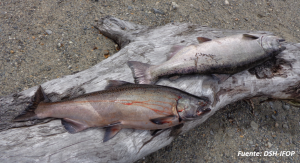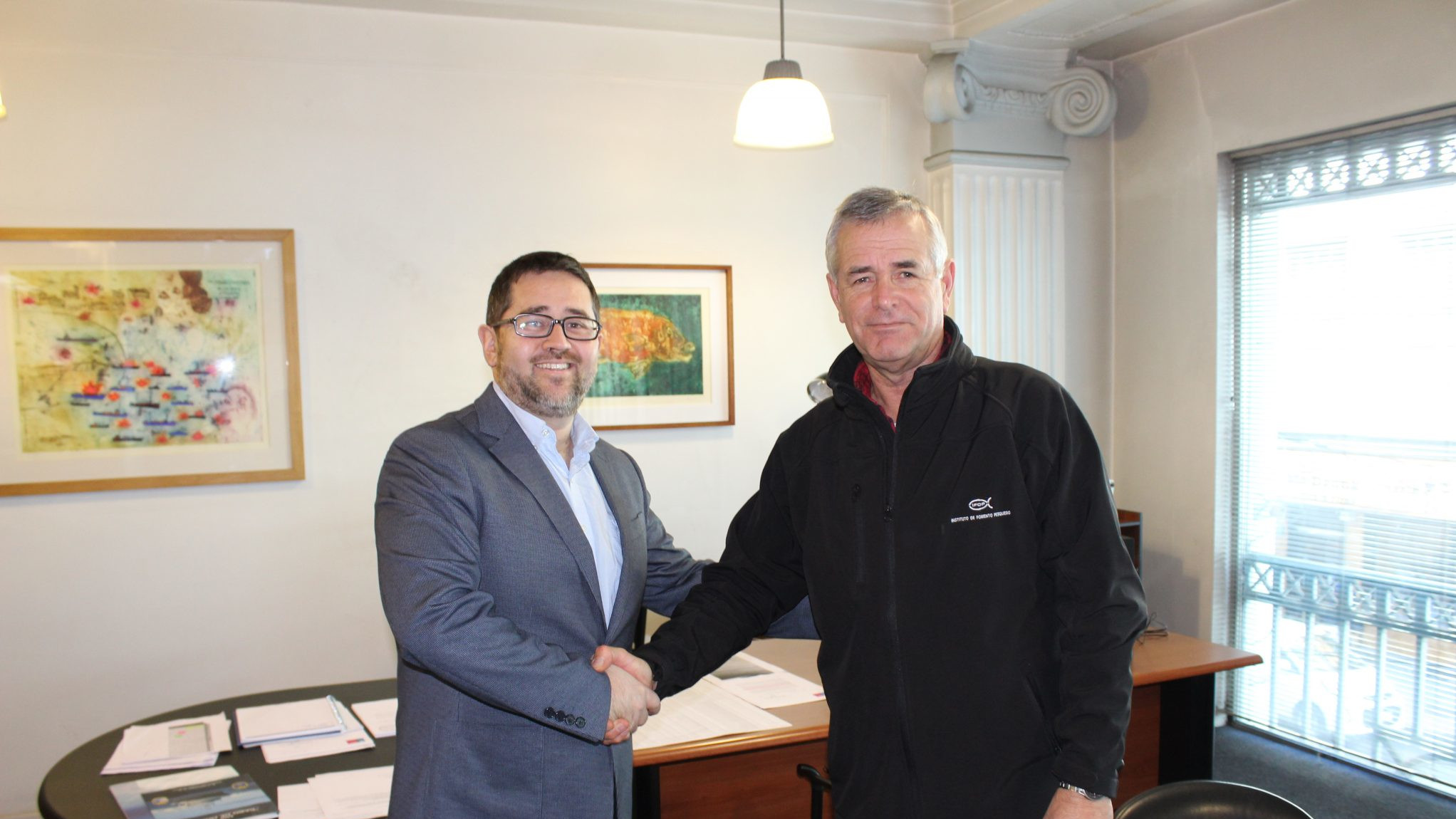IFOP and INVASAL formalize research alliance for free-living salmonids scientific study in Chile
July 30th, 2018
Both institutions, specialized, highly prestigious at a national and international level signed a collaboration agreement
Fisheries Development Institute (IFOP) and Millennium Nucleus of Invasive Salmonids (INVASAL) signed a scientific cooperation agreement that will consolidate collaboration between both institutions and facilitate genetic and genomic analysis information on trout and free-living salmon, under “Evaluation and Monitoring of the sanitary situation of wild species in fresh water and the sea” program developed by IFOP. Through this agreement, IFOP will provide organ samples for the execution of genetic analyzes in free-living salmonids captured from rivers, lakes, estuaries and sea, thus facilitating the genetic identification of the specimens, allowing their differentiation from those escaped from farming centers. INVASAL will use this information to complete distribution maps of salmonids, especially in southern Chile, where it is often not possible to distinguish naturalized individuals from escapes, under field conditions, a tool that at the same time has a high potential for applicability in research, and that will be very useful to answer part of this research program objectives that IFOP carries out.
The INVASAL Millennium Nucleus, with headquarters at Universidad de Concepción, is a Millennium scientific research center that brings together specialists in salmonids, aquatic mammals, native fish and macroinvertebrates of inland waters. Dr. Daniel Gómez Uchida Zoology Department professor, director and researcher responsible for the project, leads a team of researchers with wide territorial coverage including Universidad de Antofagasta, Universidad de Valparaíso, Universidad de Playa Ancha, Universidad de Chile, Universidad de Concepción, Universidad de Los Lagos, MERI Foundation, Universidad de Magallanes, Washington University (USA) and Waikato University (NZ).
The collaboration agreement also aims to encourage the exchange of researcher stays, the formulation, development and dissemination of projects of common interest for both institutions and at the same time promote exchange of data and information that emanate from individual research projects.
IFOP and INVASAL will establish a channel for information exchange through conferences, congresses, workshops, seminars, symposiums and trainings and will formalize the results of their joint work through the generation and publication of scientific articles and instances of scientific dissemination addressed towards the community.
Juan Carlos Quintanilla, Veterinarian and Marine Biologist, IFOP, researcher and project manager, explained “the importance of concluding the agreement between both institutions is that this will strengthen scientific collaboration in areas of mutual interest, in addition to enhancing the capabilities and knowledge of our team in such relevant and specific matters as the analysis of genetic and genomic information of salmonid populations, obtained through research fishing carried out from the Araucanía Region to the Magallanes Region, within the framework of the monitoring program of the sanitary situation in wild species “. This agreement will promote the development of the Research Programs led by the Department of Hydrobiological Health of the IFOP, and of more specific collaborative projects, generating scientific knowledge of quality and prestige.
